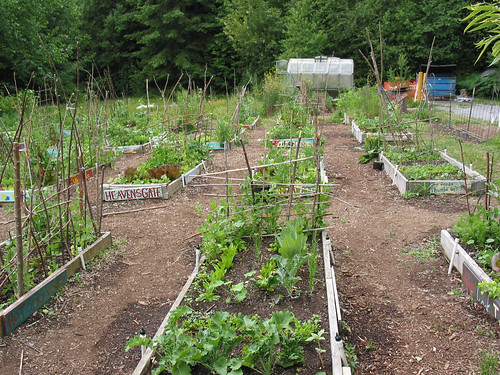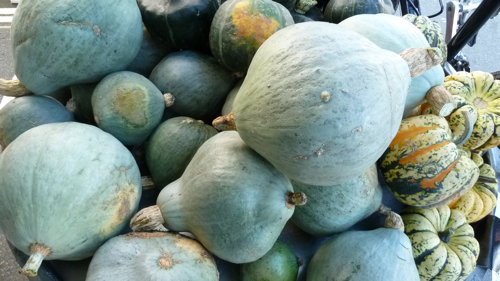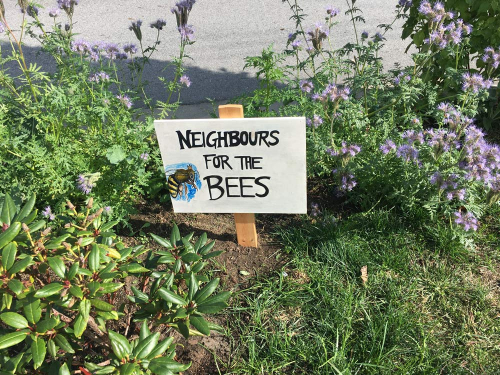Start small, dream big for climate change

I was criticized once by someone who didn’t believe that my choice to not buy broccoli from China and peppers from California in the wintertime would make any difference. I would indeed be acting alone and in vain if everyone lacked faith in the power of the collective. After all, revolutions and rallies are composed of individual people sharing a common purpose. My argument was that if enough of us did not buy Californian peppers in December, it would affect the amount purchased by the store that carried it, impacting up the chain and so forth. It seems like a naive thought but the popularity of eating local has been growing, and with good reason. Eating local and in season offers many benefits including support of small-scale agriculture and healthier, more flavourful food. In terms of climate change, supporting local agriculture and in tandem avoiding foods — especially processed and pre-packaged foods — that have travelled a long distance make a huge impact. Agriculture is as responsible for greenhouse gas emissions as is transportation, based on a system designed around accessing foods year-round and producing these foods in large quantities to be shipped long distances.
Currently, much of the imported food we eat travels more than 5,000 kilometers from the farm to your plate. Food that is grown closer to home will therefore have fewer transportation emissions associated with it. And as the distance food travels decreases, so does the need for chemicals and processing to reduce spoilage.
Synthetic pesticides and fertilizers are often made from fossil fuels, and manufacturing and transporting them generates significant greenhouse gases. Studies have shown that chemical farming uses about 30 per cent more energy per unit of production than organic farms, which use naturally derived fertilizers and pesticides. In addition, organic farms — which often rely on manure and compost for fertilizer — store much more carbon in the soil than farms that rely on chemical fertilizers, keeping it out of the atmosphere where it contributes to global warming.
(Source: David Suzuki Foundation)
From machinery — I’ve witnessed a blueberry-picking machine first-hand — and pesticides to packaging food (usually in plastic) and shipping it across the country, modern agriculture is a complex burden. Moreover, the effects of climate change on already stressed ecosystems and farms that lack biodiversity may be hard to cope with and will cause the most damage in poor areas where the people’s ecological footprint is smallest. Here are some small steps you can take at home and in your community to help fight climate change by reducing your own footprint:
– Grow your own! If you have children, you might be surprised what they’ll eat off a plant that they wouldn’t normally eat at the table. Getting children interested in where food comes from and how it grows will establish healthy eating habits and fortify their relationship with nature. Find a community plot or try planters on your balcony if you don’t have a yard. (Convert some of your lawn to a garden to reduce lawn mower usage.)
– Choose your food in this order: local organic, local conventional, non-local organic, non-local conventional. Often organic travels farther, so be choosy and make compromises where necessary. Always choose fair-trade cocoa and shade-grown coffee.
– Make your own! Consider how much time you spend food shopping, and how much it costs, versus cooking at home from fresh ingredients. Remember, they have to ship the packaging along with the vegetables.
– Bring your own reusable mesh bags or the plastic produce bags from the store to reduce waste.
– Shop at the farmer’s market and enjoy the difference in atmosphere compared to the sterile, cold supermarket. Take the bus or ride your bicycle to the market.
– North Americans spend less on food as a percentage of their income than Europeans, and we are less healthy for it. Good food costs more for a reason while cheap food does not reflect external costs such as environmental damage. Change the balance of your spending, and if you can, join an organic food co-op to get cheaper organics.
– Show your support for local agriculture by standing up for your farmland.
– Read Michael Pollan’s In Defense of Food and watch Food Inc.
Take action
While small steps add up and are important, work your way up to making big changes not only in your life and the community but on a provincial and national scale by getting involved in rallies, campaigns, and petitions, and by telling the people who represent YOU in government that you want action on climate change. Find a local issue you’re passionate about and keep participating. Find a national issue you’re passionate about and keep the dialogue going. Educate and inspire your neighbours to make changes and get involved.
You have a voice. Show our politicians you know how to use it!



